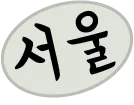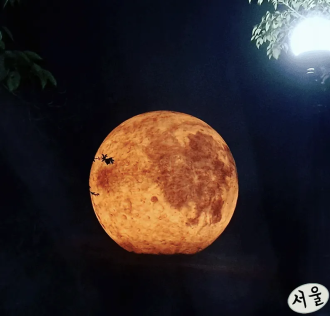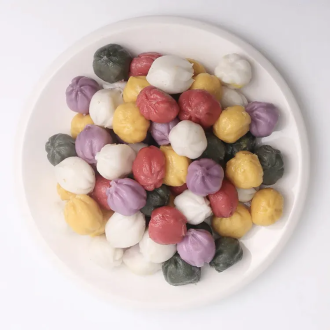The Meaning Behind Chuseok
Imagine a time of year when the full moon shines the brightest and the harvests are plentiful. That's when Chuseok, one of the most significant holidays in South Korea, is celebrated. Known as Korean Thanksgiving, Chuseok is a time for families to come together, honor their ancestors, and celebrate the bounties of the harvest.
Origins of Chuseok: Celebrating the Harvest
The roots of Chuseok trace back to Korea's agrarian past, where it began as a harvest festival. During this time, farmers would gather the ripe grains, offer thanks to their ancestors and the heavens for a successful harvest, and share their bounty with the community.
The name "Chuseok" 추석, translates to "Autumn Eve," which refers to the festival's timing on the 15th day of the 8th lunar month, coinciding with the autumn equinox when day and night are of equal length.
Family Gatherings and Ancestral Rites
One of the cornerstones of Chuseok is the family reunion. Koreans, wherever they are, return to their hometowns to gather with their families, a tradition known as 'Seongmyo' (성묘).
The holiday also involves 'Charye' (차례), an ancestral memorial ritual. Families prepare a feast of freshly harvested foods and present them on a ritual table as an offering to their ancestors. The ceremony is a way of expressing gratitude and respect for the forebears and seeking their blessings.
The Rich Cuisine of Chuseok
The table laden with the offerings for Charye isn't just any meal; it's a display of traditional Korean cuisine at its finest. The star of the table is 'Songpyeon,' a type of rice cake filled with sweet or savory ingredients, and steamed over a layer of pine needles, lending them a distinctive aroma.
Other traditional foods include 'Japchae' (잡채) stir-fried glass noodles, 'Bulgogi' (불고기) marinated beef, and 'Jeon' (전) Korean pancakes, each dish reflecting the culinary heritage of Korea.
Chuseok Traditional Games
Chuseok isn't all solemn rituals and feasting; it's also a time for fun and games! Traditional Korean games like 'Ssireum' (씨름) or Korean wrestling, 'Ganggangsullae' (강강술래) a traditional circle dance, and 'Yutnori' (윷놀이) a traditional board game add to the merriment. These games not only provide entertainment but also help preserve and pass down cultural practices to younger generations.
Chuseok in the Modern Korea
Despite the rapid modernization of Korean society, the spirit of Chuseok remains untouched. The festival has adapted to the times, with online services now assisting with Charye preparations, and modern twists being added to traditional Chuseok foods.
Yet, the essence of Chuseok — honoring ancestors, cherishing family, and celebrating the harvest — continues to thrive. It’s a testament to the enduring strength of Korean traditions amidst the ebb and flow of change.
Chuseok is much more than a holiday; it's a cultural treasure that encapsulates the history, values, and spirit of Korea. It's a time when the hustle and bustle of daily life take a backseat, and the focus shifts to family, gratitude, and celebration.
So, whether you're savoring the taste of Songpyeon, sharing laughter over a game of Yutnori, or simply enjoying the togetherness that Chuseok brings, remember to take a moment to appreciate the rich cultural tapestry that makes this festival so special.



